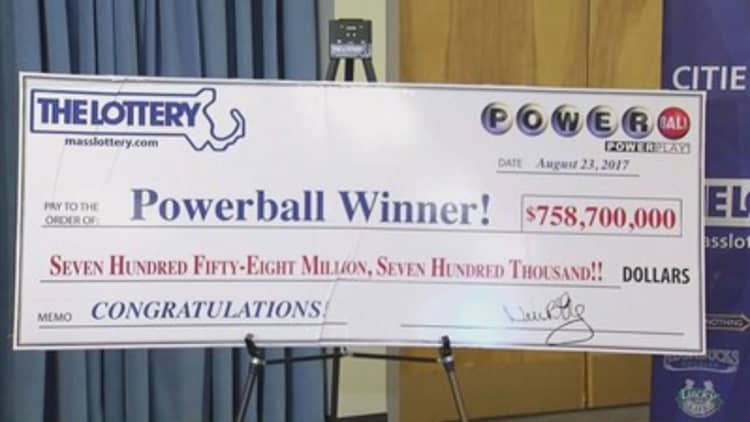After winning the biggest undivided jackpot lottery in U.S. history, Mavis L. Wanczyk of Chicopee, Massachusetts, ignored much of the advice that financial experts typically give to lottery winners. She quit her job, spoke with the press and took her winnings as a lump sum. While she may be able to afford to break the rules, most winners can't.
Lottery winners are more likely to declare bankruptcy within three to five years than the average American. What's more, studies have shown that winning the lottery does not necessarily make you happier or healthier.
"Evidence shows that most people who make it to the top one percent of income earners usually don't stay at the top for very long," writes The Washington Post's Jonnelle Marte.
Economist Jay L. Zagorsky agrees with the research. He writes for U.S. News and World Report: "Studies found that instead of getting people out of financial trouble, winning the lottery got people into more trouble, since bankruptcy rates soared for lottery winners three to five years after winning."
Jack Whittaker, who won $315 million in a lottery in West Virginia in 2002, tells Time, "I wish that we had torn the ticket up." Since winning, Whittaker's daughter and granddaughter died due to drug overdoses.
Just eight months after winning, he was robbed of $545,000. "I just don't like Jack Whittaker. I don't like the hard heart I've got," he said. "I don't like what I've become."
"He's the last person I would have prototyped for going completely crazy but he did," Don McNay, a financial consultant to lottery winners and the author of "Life Lessons from the Lottery," tells Time about Whittaker. "No question it was because he won the lottery."
McNay says many winners struggle with suicide, depression and divorce. "It's the curse of the lottery because it made their lives worse instead of improving them," he says.
Another major struggle that winners often face is saying "no" to friends and family who hope to join in on the good fortune.
Charles Conrad, senior financial planner at Szarka Financial, told Teresa Dixon Murray, "Once family and friends learn of the windfall, they have expectations of what they should be entitled to." He explained, "It can be very difficult to say 'no.'"
Of course, some lottery winners survive the tumult and go on to thrive. Missouri lottery winner Sandra Hayes has managed to keep her head above water even after splitting a $224 million Powerball jackpot with 12 coworkers.
"I had to endure the greed and the need that people have, trying to get you to release your money to them. That caused a lot of emotional pain," she told The Associated Press. "These are people who you've loved deep down, and they're turning into vampires trying to suck the life out of me."
The former social worker has avoided financial misfortune by maintaining her frugal lifestyle even though she no longer lives paycheck to paycheck. "I know a lot of people who won the lottery and are broke today," she said. "If you're not disciplined, you will go broke. I don't care how much money you have."
Like this story? Like CNBC Make It on Facebook
Don't miss: Here's what happens if you don't pay your student loans




